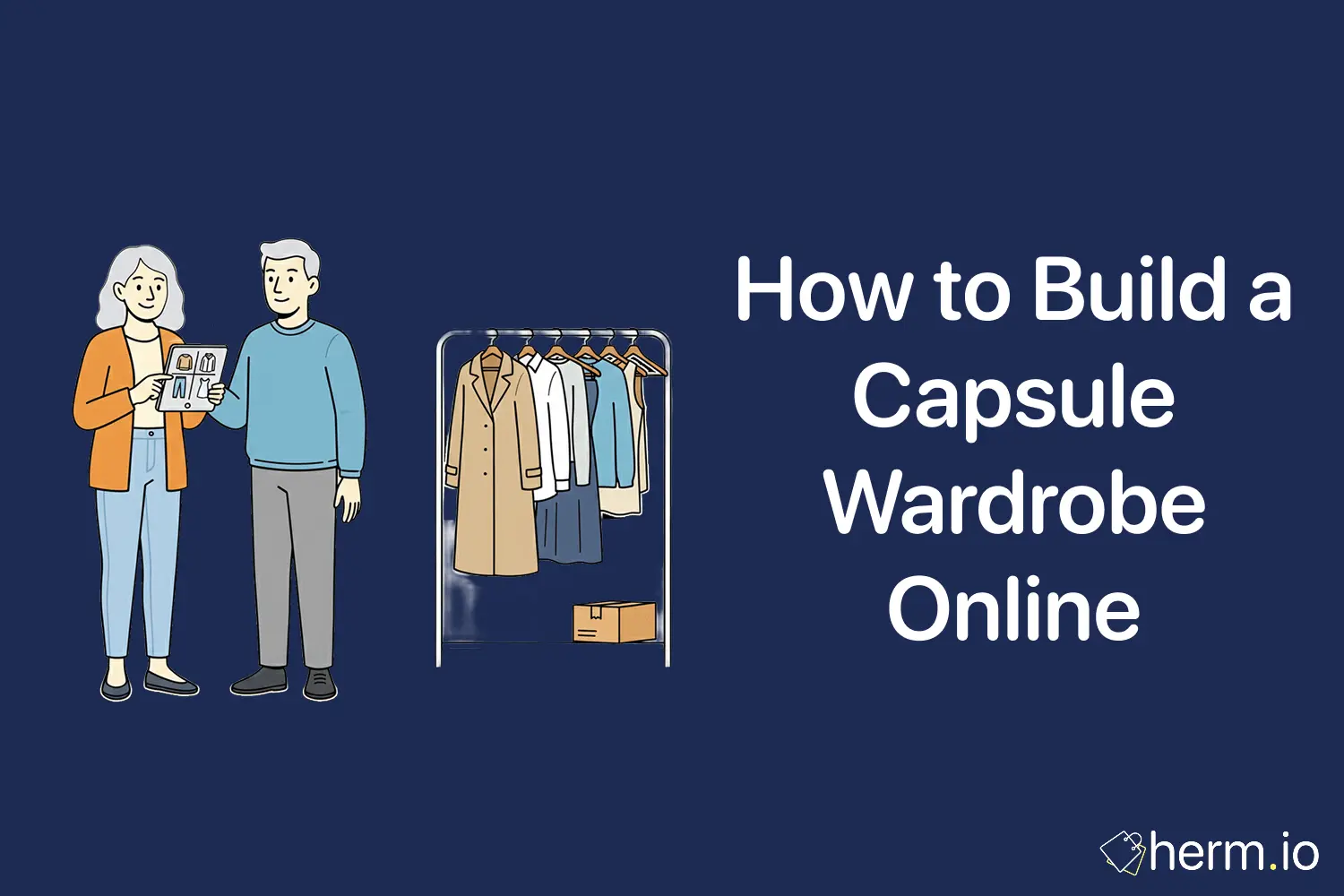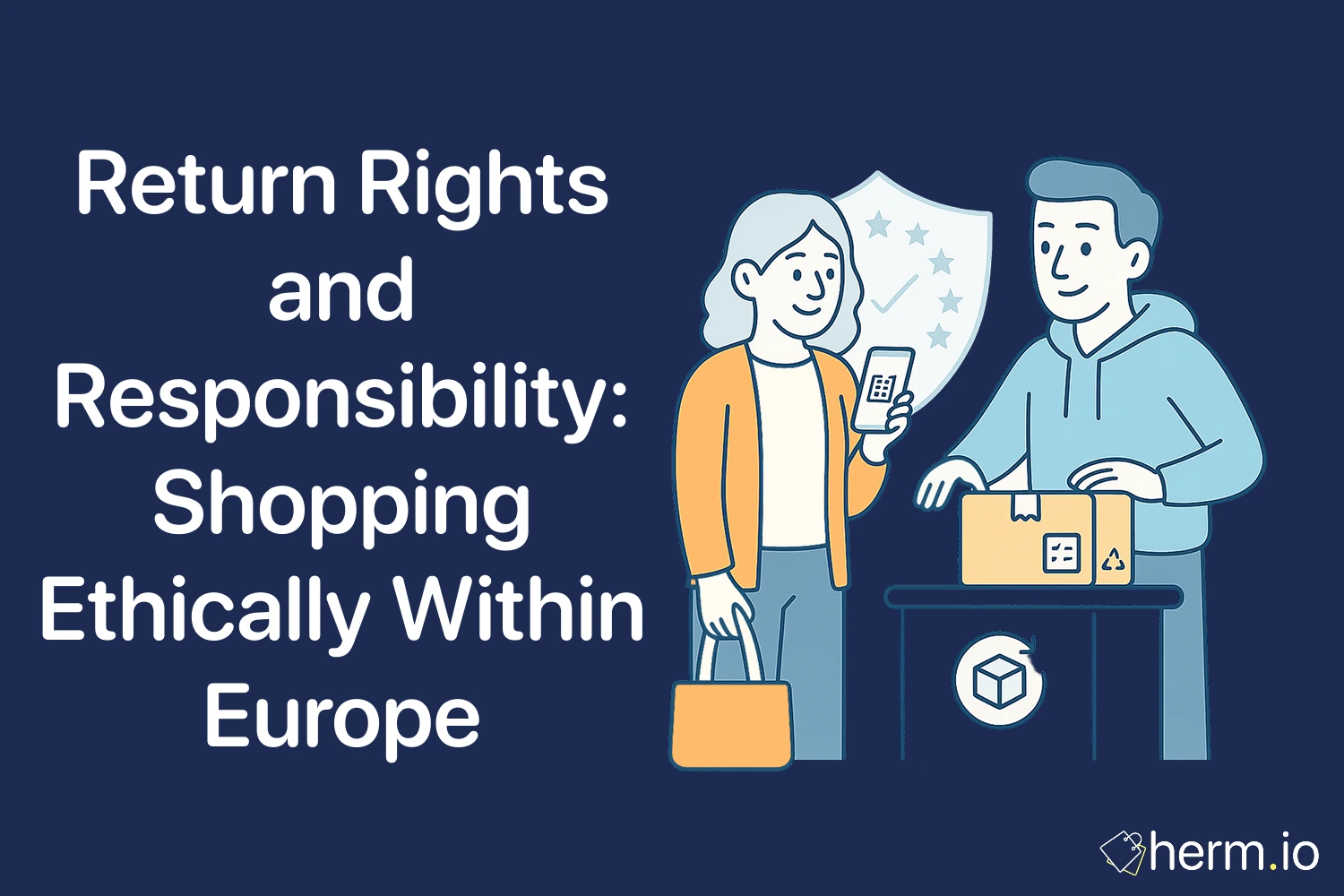
What strikes me as particularly important when I watch shoppers browsing through racks of clothes is how rarely we pause to consider the hands that stitched each seam. We have a responsibility to understand that our clothing choices ripple far beyond our wardrobes; they touch lives across continents and shape the future of our planet.
Like watching patterns emerge in nature, I've observed how conscious consumers are quietly revolutionising the fashion industry. They're seeking brands that honour both people and planet, proving that style and ethics aren't mutually exclusive. The question isn't whether we can afford to shop ethically—it's whether we can afford not to.
Quick Wins: Start Your Ethical Shopping Journey Today
- Look for GOTS, Fair Wear Foundation, or OEKO-TEX certifications on clothing labels
- Research three European ethical brands before your next clothing purchase
- Download Good On You app to check brand ratings whilst shopping
- Start with one ethical basic item (white t-shirt or jeans) to build your sustainable wardrobe
- Join brand newsletters for early access to sales and exclusive offers
Understanding What Makes Fashion Truly Ethical
The foundation of ethical fashion rests on three interconnected pillars that support both human dignity and environmental stewardship. What strikes me as particularly telling is how these elements work together like an ecosystem.
Recognised Certifications Matter
Genuine ethical brands display certifications that require annual audits and ongoing compliance. GOTS (Global Organic Textile Standard) ensures organic fibres meet strict environmental criteria. Fair Wear Foundation monitors labour conditions throughout supply chains. OEKO-TEX Standard 100 guarantees fabrics are free from harmful chemicals.
These aren't simply marketing badges; they represent accountability systems that hold brands to measurable standards.
Transparency Creates Trust
Ethical brands openly share their production processes, factory locations, and supply chain relationships. Many publish annual sustainability reports detailing their progress and challenges. Some even use blockchain technology to let you trace your garment's complete story from cotton field to your doorstep.
We have a responsibility to support brands that invite scrutiny rather than hide behind vague marketing claims.
Environmental Stewardship Runs Deep
True sustainability encompasses water usage, chemical treatments, energy sources, and end-of-life planning. Ethical brands choose organic or recycled materials, invest in renewable energy for production, and often operate take-back programmes for worn garments.
European Brands Leading the Ethical Fashion Movement
Germany: Armed Angels
Armed Angels demonstrates how minimalist design can carry maximum impact. Their Cologne-based team has spent years perfecting the balance between Scandinavian simplicity and German engineering precision.
Their organic cotton comes with GOTS certification, whilst TENCEL™ Lyocell provides silk-like softness without environmental compromise. What I find particularly reassuring is their partnership with Fair Wear Foundation factories in Turkey and Portugal, where regular audits ensure workers receive living wages.
The brand's annual Transparency Report reads like a commitment letter to customers, listing every partner factory and sustainability milestone. Their clean lines and muted tones create a versatile foundation for any wardrobe.
United Kingdom: People Tree
People Tree pioneered ethical fashion before it became fashionable. Since 1991, they've demonstrated that fair trade principles can create genuinely beautiful clothing.
They work directly with artisan cooperatives in Bangladesh, India, and Nepal, providing above-market wages, healthcare benefits, and secure working conditions. Each product page tells the maker's story, connecting you with the craftspeople behind your garments.
Their aesthetic blends classic British tailoring with global influences, creating pieces that feel both timeless and contemporary. The floral prints and thoughtful patterns reflect the careful attention given to every aspect of production.
France: Veja
Veja sneakers have become symbols of conscious consumption without sacrificing style. Their Parisian design team sources wild rubber directly from Amazonian cooperatives, supporting forest conservation whilst creating employment.
The brand's use of organic cotton from Brazil and chrome-free leather processing reduces environmental impact significantly. What strikes me as particularly honest is their practice of publishing detailed cost breakdowns, showing exactly how much goes to materials, labour, and transport.
These white leather sneakers with subtle colour accents pair beautifully with everything from weekend jeans to workday dresses.
Scandinavia: Nudie Jeans
Sweden's Nudie Jeans transforms the humble pair of jeans into a statement about durability and repairability. Every pair comes with a lifetime repair guarantee, reflecting their commitment to circular fashion principles.
Their 100% organic cotton denim avoids synthetic fibres, whilst GOTS certification ensures sustainable production processes. Factory partnerships in Italy and Turkey include regular staff visits and transparency audits.
The brand hosts repair workshops across Europe, teaching customers to mend and customise their jeans. This approach extends garment lifespans whilst building community connections around conscious consumption.
Smart Strategies for Budget-Conscious Ethical Shopping
Ethical clothing often requires higher initial investment, but thoughtful shopping strategies can make sustainable fashion accessible.
Time Your Purchases Wisely
Like observing seasonal migrations, ethical brands follow predictable discount patterns. Summer collections go on sale in late August; winter pieces reduce in February. Signing up for newsletters often provides 10-15% first-order discounts.
Explore Secondhand Options
Platforms like Vinted and Depop frequently feature barely-worn ethical pieces at 30-70% below retail prices. I've found excellent Nudie jeans and Armed Angels basics this way, often in perfect condition.
Consider Bundle Purchases
Many sustainable brands offer multi-item discounts. If you need several basics like organic cotton t-shirts or underwear, bundling can reduce per-item costs significantly.
Helpful Technology for Ethical Shopping
Good On You App
This tool rates over 2,500 fashion brands across labour practices, environmental impact, and animal welfare. The clear A-F scoring system makes ethical evaluation straightforward whilst shopping.
Ethical Made Easy
Created by Ethical Consumer magazine, this app filters brands by sustainability criteria, materials, and certifications. You can search specifically for recycled fabrics or Fairtrade certification.
Weighing the Reality of Ethical Fashion Choices
BenefitsConsiderationsSuperior quality and longevityHigher upfront investmentPositive social and environmental impactFewer style options per seasonComplete transparency and traceabilityLonger shipping times occasionallyUnique, handcrafted detailsLess frequent sales and discounts
The numbers tell a clear story: quality ethical garments typically last three to five times longer than fast fashion alternatives, making them economically sensible long-term investments.
Frequently Asked Questions
How can I verify a brand's ethical claims?
Start by checking for recognised certifications like GOTS, Fair Wear Foundation, or OEKO-TEX. Look for published factory lists and annual sustainability reports. Use the Good On You app for independent ratings based on thorough research.
Are sustainable materials always better for the environment?
Each material involves trade-offs. Organic cotton requires significant water but biodegrades naturally. Recycled polyester diverts plastic waste but releases microplastics during washing. TENCEL™ Lyocell balances lower water usage with natural biodegradability.
Do ethical brands offer repair services?
Many do. Nudie Jeans provides lifetime repairs, whilst Armed Angels sometimes accepts old pieces for recycling. Always check brand websites for specific take-back or repair programmes.
Can I find ethical options for special occasions?
Absolutely. The ethical fashion market now spans everything from swimwear to formal attire. Brands like Stella McCartney offer premium options, whilst newer companies provide accessible occasion wear.
We have a responsibility to recognise that every purchase represents a choice about the world we're creating. Like watching seeds grow into forests, supporting ethical brands today cultivates the fashion industry we want for tomorrow. Your wardrobe can become a quiet revolution, one thoughtful purchase at a time.

Isla Penelope Brooks
I'm a British data storyteller and analytics specialist based in Munich. As a Technical University of Munich graduate, I transform complex data into meaningful insights. I'm passionate about equity in data and believe in the responsibility that comes with shaping what people see and think through marketing.

.png)








.png)

.png)
.png)
.png)